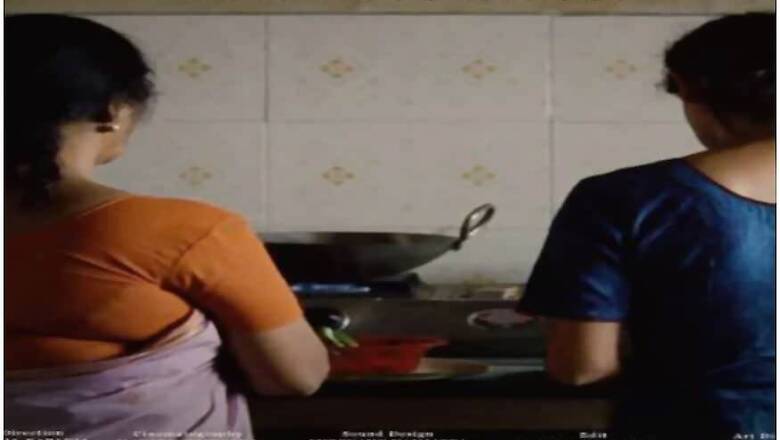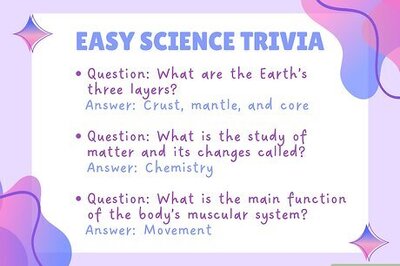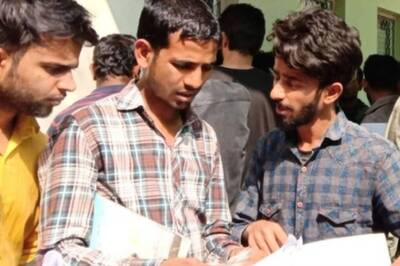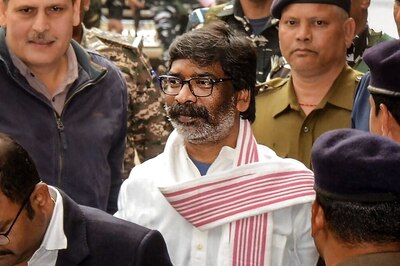
views
As cinemas remain shuttered and shootings postponed indefinitely, a new film project in Mumbai has just received a fresh lease of life. Titled All We Imagine As Light, the debut feature film by Film and Television Institute of India (FTII) alumna Payal Kapadia will be looking for funding in France on a virtual platform organised by the Cannes film festival next month. Interestingly, Kapadia's film centres around two migrant nurses from Kerala working in Mumbai.
Kapadia will be pitching her project as part of the Cannes festival's Cinefondation Résidence programme for young directors around the world working on their first or second feature films. Launched in 2000, the prestigious Résidence programme's previous participants include Lebanese actor-director Nadine Labaki, who made the Oscar-nominated Capernaum, Hungarian László Nemes who won the 2016 Academy Award for Best Foreign Language Film for Son of Saul, and acclaimed Romanian director Cornelieu Porumboiu.
"In the virtual pitch, we will be pitching to the national French funding body, the CNC (National Cinema Centre)," says Kapadia, the first Indian ever to be selected to Cinefondation Résidence, a personalised programme accompanying the writing of scripts and a collective programme of forums with film industry professionals.
"The Résidence is a very helpful space as they really try to introduce you to the right kind of people for the project," adds Kapadia. The virtual pitch will take place during June 22-26.
Story of two nurses
A co-production between India and France, All We Imagine As Light tells the story of two nurses -- Prabha and Anu -- from Kerala who work in a nursing home in Mumbai. When Prabha receives an unexpected gift from her estranged husband, it throws her life into disarray. Anu, her younger roommate, meanwhile searches for a spot to be intimate with her boyfriend. Forced to take a day trip to a beach town, the two nurses leave behind the rules that have governed their lives so far.
"Nurses are seen to be very caring and giving. However, there is a lot of personal turmoil, suppressed desires and conflicts that may lie within, just like in any individual. And most times, they cannot be expressed through words," says Kapadia, whose short film Afternoon Clouds was the first FTII student film to be selected by the Cannes festival in 2017. "Through the film, I was hoping to free my characters from the burden of their immediate identities and allow them to express their own feelings and have an agency as a person rather than be seen as a ‘nurse in a uniform'," she adds.
"The nurses in my film have been a part of my life for years. For me, the work that they did was always so important and deeply impacted me even before. Perhaps this is why I needed to make this film," says Kapadia, who received the Rotterdam International Film Festival's 9000-euro Hubert Bals Bright Futures Fund for script and project development last year for her debut feature project.
"I lived with my grandmother all my life in an apartment in Mumbai. In fact, even Afternoon Clouds came from this experience. For almost five years before she passed away at the age of 98, she needed full time care. Day and night nurse would stay with us during this time," explains Kapadia about the point of departure for All We Imagine As Light.
"Living all together, we spent a lot of time with each other. Meanwhile, my grandmother’s health deteriorated and she began to have feverish dreams which she wrote down in her diary. Even though my grandmother and the nurses were so different, they had a common loneliness, that was devoid of self-pity. It was through our chats in those hot afternoons that the story of the film evolved."
Gender and cultural politics
Kapadia's film negotiates the sensitive gender and cultural politics in the country. "In all my work so far I try to address the difficulty that women have in India to speak about love. But with immigrant nurses, this becomes even more complicated," explains Kapadia. "Unlike many women in India, nurses are financially independent, even supporting their families back home. And still, even from far away, the familial morality binds them. In the film, the women are negotiating this balance between the morality that they have left behind and the new struggles that the city has in store for them."
Kapadia, whose 2018 experimental documentary, And What is the Summer Saying, premiered at the Berlin festival (the film also won the Special Jury Prize at the International Documentary Film Festival, Amsterdam the same year), began writing All We Imagine As Light in 2017, but didn't develop it much till late 2018 when she was invited to participate at the PJLF Three Rivers writing residency in Rome. "That is when I had collected a lot of my research material and began to write the film. After this I started working with my Indian and French producers," she says.
Mumbai is an integral part of the film's story and its philosophy. The first part of the film takes place during the monsoon in Mumbai. The two protagonists live in a shared suburban apartment while also working together in a hospital. "Like many others, they too are migrants who have to gear their entire life towards earning a living and supporting a family back home," says Kapadia. "There is a work ethic promoted in Mumbai especially among the working classes that leaves little time for the individual."
"There is a perceived sense of freedom for working women as compared to the rest of our country. And yet there are contradictions because there is still a lot of prejudice that comes from caste, religion and gender identities. However, at the end of the day, it’s a love story."
Kapadia is looking forward to the second part of her Cannes Résidence programme next month after the first in Paris that included writing the script. "The Résidence was a very enriching experience. I had the privilege to write my film in an apartment in Paris with nothing much to worry about except my work. This is a rare opportunity for any filmmaker starting out. I was living with five other filmmakers selected from around the world and we shared our work with one another. But most importantly, it gave me time to focus only on my work without much distraction, which is very helpful for the scriptwriting process. Although Paris can be a rather distracting city."
(Author Faizal Khan curated India’s first football films festival with artist Riyas Komu at the 2011 International Film Festival of India, Goa. He was the curator of a football films programme in the Artists Cinema section of the second Kochi-Muziris Biennale in 2014.)



















Comments
0 comment